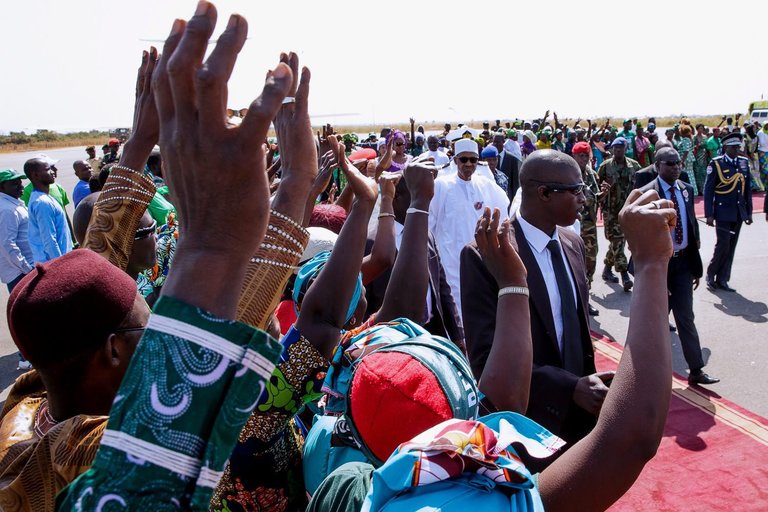President Trump spoke by phone on Monday with the president of Nigeria, whose countrymen have not heard from him in weeks.
Many of them have been wondering: Where is our president, and how is he doing?
The president, Muhammadu Buhari, 74, left Nigeria for a vacation on Jan. 19, which was later extended, his office said on Feb. 5, for medical tests and treatment in London. But Mr. Buhari’s aides have refused to provide details about his health or his whereabouts, or even to say whether they have been in touch with him.
The lack of clarity has spurred rumors — in a nation of 180 million that is known for its love of political intrigue and speculation — that Mr. Buhari might be in poor health or even that he might be dead.
One of Mr. Buhari’s predecessors, Umaru Yar’Adua, died in 2010 after a closely hidden chronic illness that led to a political crisis. Mr. Yar’Adua, who came from the largely Muslim north, was replaced by his vice president, Goodluck Jonathan, who came from the mostly Christian, oil-rich Niger Delta region in the southeast.
Mr. Yar’Adua’s illness and death unsettled the longstanding Nigerian tradition of rotating political power among leaders from different regions, tribes and faiths.
In Mr. Buhari’s absence, Vice President Yemi Osinbajo, a Christian and a Yoruba from the southwest, has been filling in — a situation that for many Nigerians brings back anxious memories of the political tensions of 2010.
In a statement late Monday afternoon, Mr. Buhari’s spokesman, Femi Adesina, said that Mr. Buhari and Mr. Trump had “discussed ways to improve cooperation in the fight against terrorism through provision of necessary equipment.”
The statement also said that Mr. Trump had “encouraged President Buhari to keep up the good work he is doing,” including the release in October of some of the hundreds of girls whom the Islamist militant group Boko Haram had abducted from a school in the town of Chibok in 2014.
“President Trump assured the Nigerian president of U.S. readiness to cut a new deal in helping Nigeria in terms of military weapons to combat terrorism,” the statement added. “President Trump also invited President Buhari to Washington at a mutually convenient date.”
The White House had announced that Mr. Trump would speak by phone with Mr. Buhari and President Jacob Zuma of South Africa, but it did not provide immediate details on Monday, when he was also meeting with Prime Minister Justin Trudeau of Canada. (Mr. Zuma’s office said that the conversation with Mr. Trump focused on “strengthening the already strong bilateral relations between the two countries.”)
Mr. Buhari’s special adviser for media and communications, Mr. Adesina; another spokesman, Garba Shehu; and an assistant, Bashir Ahmad, did not respond to requests for comment made via Twitter on Monday.
The president of the Senate, Bukola Saraki, said last week that Mr. Buhari was in good spirits and had joked about working late into the night, and that he was living at the London residence of the Nigerian high commissioner to Britain. (The high commission is equivalent to an embassy; Nigeria is a member of the British Commonwealth.)(The New York Times)














